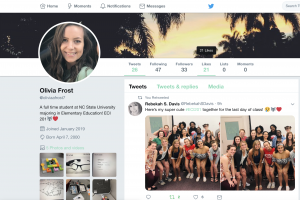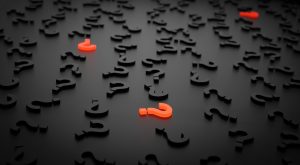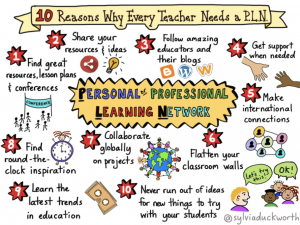What in the world is a “PLN”?

I know you may be thinking this, because when I was thrown into this class discussion, I was thinking the exact same thing. In ECI 201 we were given the task of completing a chart that outlined what we know about “PLN’s”, what we want to know about PLN’s, how we can find out the things we want to know, and, lastly, we were to write about what we learned about these mysterious things. As I began to fill out my KWHL chart, I had no idea what to write. We were told we would be learning about PLN’s in the next class period, but, for now, just write what you want to know/have questions about.
If you’re like me, the first question you would have written in what you want to know is “What does PLN even stand for?”.
Well, I could have waited for the next lecture to learn about it, but instead, I looked it up. I came to find out that a PLN is a Professional/Personal Learning Network. Great! I know what a PLN is now!
Except… what in the world is a professional learning network??

I finally decided to write down a few more questions and to simply brace myself for the abundance of information that I would receive in the following class, seeing as I obviously knew very little about the topic at hand.
The next class rolled around and we had a guest speaker, Mr. Dayson Pasion, give our class a presentation on Professional Learning Networks and the amazing platform that Twitter can be for professionals (educators in particular) to get in touch with other professionals! Twitter, the social media app that I’ve used since I was about 14 years old, could be my very first professional pedestal into the world of education! I was blown away.
social media app that I’ve used since I was about 14 years old, could be my very first professional pedestal into the world of education! I was blown away.
I finally found out what a professional/personal learning network is, and I realized that I already had one- and you likely do, too! Generally speaking, your PLN is the group of people that you collect/share resources, ideas, references, plans, and conversation with, typically online. In the case of education, PLN’s are a great way to contact and see what things other great educators are doing, and to ask for advice, engage in conversation, and get involved with the world-wide education community.
Watch this quick video to get another explanation, and click the link at the end of the video for help getting started with your PLN!
Using Twitter as a professional learning network is a great idea for every educator. It allows you to get in touch with an infinite amount of other educators worldwide, you can follow twitter chats surrounded around education, you can collaborate with colleagues and share ideas, you can update the community/parents about what’s going on in your classroom, and you can even use it as a teaching tool in the classroom- all of this can be done in one place! Mr. Pasion, our guest speaker in ECI 201, showed us this quote from a Ms. Krissy Venosdale, that I feel really captures the idea of a PLN:
“Social media isn’t about collecting likes and followers. It’s about connecting to make a difference.“- Krissy Venosdale @krissyvenosdale
While before this class I had been using Twitter very recreationally, focusing on collecting likes and gaining followers, I’ve realized the impact that Twitter has had on the education world and how critical it has been in connecting so many influential people. I’ve started my own professional learning network account on Twitter (@oliviaafrost7), and it feels like I’m beginning my journey in the real life education world as I follow renowned and wise educators.
Click Me to Go to My Twitter!
@sylviaduckworth
I’ve already taken part in a class debate through my PLN, followed influential educators like Freebird McKinny (@FreebirdsShire), Teacher of the Year, discovered awesome books recommended by others, read the opinions of many educators on important and pressing topics, and made online connections through Twitter as my PLN. I just feel that as the digital age evolves, our ability to connect with others across the globe through a platform as easily accessible as Twitter is amazing. Our access to new ideas and information and news is infinite thanks to PLN’s, and I think that they’re so important for every educator to utilize.
Click HERE for 20 tips for starting your PLN!!!!
In the future especially I feel as though my PLN will be so helpful. I plan on using Twitter to communicate with colleagues, share lesson plan ideas, and stay up-to-date with news in the education realm. I also really like the idea of having a twitter for my classroom, where parents of my students can go to see what’s happening in our class, look at projects that their kids have done, and engage with me as the teacher. PLNs open up so many opportunities for communication that are so important. Some teachers even use Twitter in the classroom as a tool for helping kids learn, which I can definitely see myself doing as I think that social media is so important for students to start using early on with the guidance of a parent/teacher, so that they know how to appropriately use it when they’re older. I’ve seen teachers have students write daily tweets on their classroom twitter, working on grammar and spelling and implementing the importance of digital citizenship, and I love this idea.
Overall, I went from not having a single clue what a PLN was or that Twitter was so instrumental in the professional development of so many educators, to being a full supporter of educational twitter and the use of PLN’s in one class period. I hadn’t realized how useful a tool Twitter could be, or that it was even very…. professional, but to my pleasant surprise, it can definitely be both.
And if you don’t like Twitter, build your PLN on another platform! Many teachers utilize Facebook, Pinterest, Instagram, blogs, or…. multiple at once! Get creative- that’s the point!
Facebook as a PLN: https://sites.google.com/site/socialmediawhat2013/home/facebook
Pinterest as a PLN: http://www.edtechnocation.com/presentations/socialmediapln/pinterestpln
All photos from pixabay. Featured Image by Sylvia Duckworth, from https://www.teachthought.com/the-future-of-learning/10-reasons-every-teacher-needs-professional-learning-network/ .
Comments by oafrost